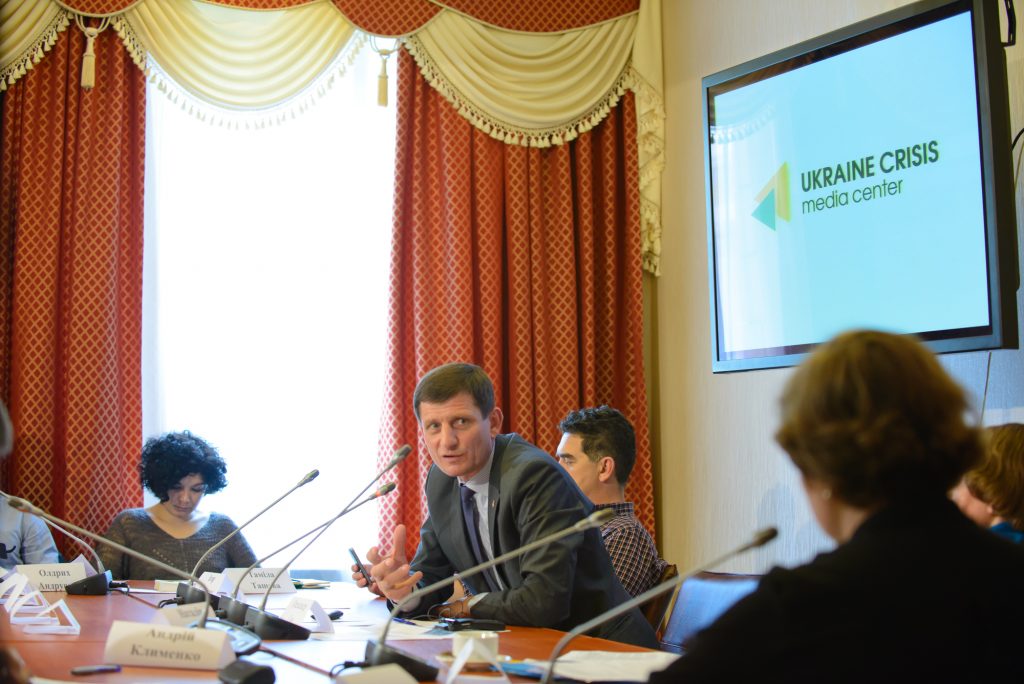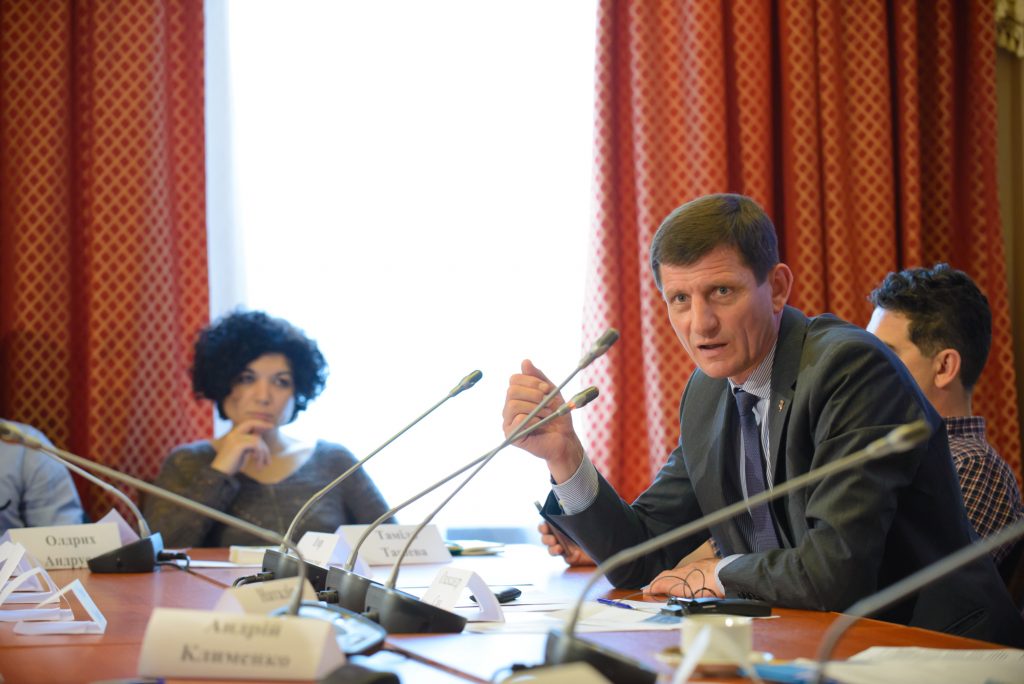Kyiv, May 19, 2014 – Oleksandr Sych, Deputy Prime Minister of Ukraine for Humanitarian Affairs during the round table “Ukraine and the Crimea: the 70th anniversary of the Crimean Tatars deportation. Trends and Challenges” in Ukrainian media crisis center said: “The occupation authorities in the Crimea have not provide the opportunity to mark the date appropriately, but Ukraine and the world are solidary with the Crimean Tatar people. Today certain actions are taken to determine the status of the Crimean Tatar people and the possible forms of realization of their rights, including the right to their own identity and development”.
“Ukraine is a home to all nations equally and everyone has the right to self-realization at this home. During the last meeting of the government – said Mr. Sych – it was decided to create such an institution as the Crimean House in Kyiv, which will be the cultural, social, political, economic center of the Crimean Tatar people in the mainland of Ukraine. Today the premises at the address 9 Suvorov street in Kyiv have been allotted for that”.
Other participant of the roundtable, Mr. Andriy Klymenko, the representative of the Supervisory Board of “Maidan of Foreign Affairs”, Chief Editor of Blackseanews, outlined a number of issues facing both the Crimean Tatars and Ukrainians, living in the Crimea. This is the problem of the Crimean isolation: information, transport, food, etc., and the problem of dual citizenship and the amplification of responsibility for “two passports”.
Also Mr. Klymenko said, that there was no consensus today regarding the situation in the Crimea, and within the Crimean Tatar people, as different points of view arose concerning the need for collaboration with the existing pro-Kremlin authorities in the Crimea. According to Mr. Klymenko cooperation does not improve the situation: “The Crimean Tatar people under occupation will be just like all other nations or even worse”.
Mr. Klymenko also touched the question of the necessity to support the Ukrainian authorities of the Mejlis of the Crimean Tatar people.
Another roundtable participant Igor Semyvolos, Director of Middle East Studies suggested that under the circumstances when the Ukrainian government could not protect the Crimean Tatars who remained in the Crimea, efforts should be focused on building settlements and creating jobs for those Crimean Tatars, who were forced to relocate or later would relocate to the mainland of Ukraine.
According to Andiy Ivanets, head of the occupied territories department of the President’s Administration, today the quantity of officially registered IDPs from the Crimea (Crimean Tatars and Ukrainians) makes 8-9 thousand people. Although there may be 15-20 thousand people as hardly everybody registers. Therefore, the issues to be addressed in the nearest future include their resettlement, employment, education, etc.
Other priority actions, essential to be addressed to solve the situation in the Crimea, include technical and political breakthrough of information blockade and strategic planning of the Crimea return and development, because, as noted Natalia Belitser, representative of the Institute for Democracy named after Pylyp Orlyk, Moldova and Transnistria example shows that the return of unrecognized areas (or areas with special legal status) does not occur automatically, even due to the deepening of European integration.
The Ukrainian Crisis Media Center was created by the efforts of leading Ukrainian experts in the field of international relations, communications and public relations. The tasks of the Centre include the provision of the international community with objective information on the events in Ukraine, challenges and threats to national security, particularly in the military, political, economic, energy and humanitarian spheres. The center is open around the clock and provides support to all the media representatives who cover events in Ukraine.
Watch video [icon icon=’Icomoon/icomoon-youtube-2′]





